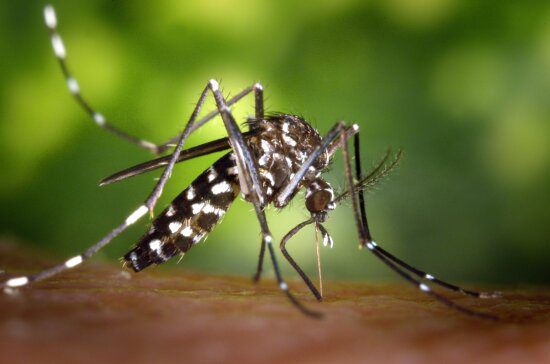Mosquitoes may be out in full force, but the city has options to help eliminate the pesky bugs. The Environmental Health Department Urban Biology Division provides a variety of tools and information to combat mosquitoes.
The department’s website says individuals can ask for mosquito spray to be applied to an area by calling 311, which takes requests for mosquito control from Albuquerque and Bernalillo County residents. Callers will need to provide their contact information and the exact address for the requested treatment.
Those who do not want their property sprayed can be placed on the no-spray list by calling 311. The city recommends being put on the no-spray list for properties with bees or where there are organic farms. A buffer will be maintained around the property, but other pesticides may still be used in the area by different agencies.
Mosquito prevention
People who have properties with ditches, ponds, bird baths and watering troughs can obtain mosquitofish to prevent breeding. Mosquitofish help prevent breeding by eating the larvae of mosquitoes. Mud Monster Landscape, Plant World and Just Sprinklers are some of the mosquitofish distributors in Albuquerque. Call ahead to make sure they have the fish in stock.
According to the city’s Department of Environmental Health website, “Allowing conditions favorable to mosquito breeding is prohibited under state and local ordinance; standing water must be prevented, drained or treated to ensure that mosquitoes are not breeding. Remember, drain and cover open containers.”
Swimming pools that are not maintained, ponds, and other areas where there is stagnant water attract mosquitoes and encourage breeding. Pools should be covered or drained if not in use, and open containers such as trash cans and pots emptied of any water. Individuals who allow mosquitoes to be breed on their property can be reported and visited by vector control technicians to enforce compliance. To report any mosquito habitats or breeding sites, call 311.
Mosquito-borne diseases
The New Mexico Department of Health website says there have been no cases of West Nile virus in the state this year, but there were 33 human cases of the disease in 2021. In 2020, there were eight human cases of West Nile virus in New Mexico with one death. A NMDOH fact sheet says, “West Nile virus infection is spread by the bite of infected mosquitoes. Most of the time, the virus causes a mild illness. Rarely it can cause encephalitis (inflammation of the brain), meningitis (inflammation of the lining of the brain and spinal cord) or paralysis.”
There is no vaccine for West Nile virus, and antibiotics do not work to treat patients. According to NMDOH, doctors can reduce symptoms with other medicines and most people recover from the illness. In addition to the mosquito prevention measures suggested by Albuquerque’s Department of Environmental Health, NMDOH recommends wearing long, loose and light-colored clothing, reducing time outdoors when mosquitoes are biting, and using insect repellant
The most recent data NMDOH has for Zika virus cases in New Mexico is for 2019, when there were no reported cases in the state. There were no reported cases of Zika in 2018 or 2017 either, but there were 10 cases in 2016, with four of them in Bernalillo County. Zika can be spread through the bite of an infected mosquito, through sexual contact, blood transfusions and from mother to fetus during pregnancy. Zika infection can cause birth defects or miscarriage in some pregnant women. Symptoms include fever, rash, joint pain or conjunctivitis. Protection from Zika includes using DEET, Picaridin, oil of lemon eucalyptus, par-menthane diol and IR3535.
According to the Centers for Disease Control and Prevention, approximately 627,000 people died of malaria in 2020. Malaria is caused by a parasite that infects a certain type of mosquito that feeds on humans. Luckily, there are very few cases of malaria in the U.S. – about 2,000 a year – but it is still a concern for travelers visiting tropical and subtropical areas. If traveling overseas, the CDC website has a list of countries where malaria is prevalent and has recommendations for antimalarial drugs.
Heartworm can also be transmitted through mosquito bites. According to Albuquerque’s Department of Environmental Health, “Dirofilaria immitis, the dog heartworm, is a parasitic roundworm that invades the heart and lungs of its host.” The worms are transmitted from one animal to another through mosquito bites. Symptoms include collapse, difficulty breathing, convulsions, diarrhea/vomiting, blindness, coughing, lethargy, lack of appetite and sudden death. Dogs can be tested for heartworm by a veterinarian and medication provided year-round to prevent infection.


